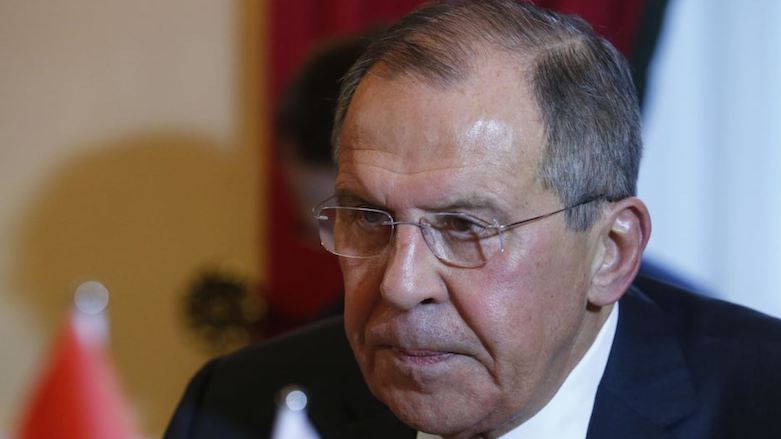Ex-Russian FM sympathizes with Kurds, warns against relying on Moscow
WASHINGTON DC, United States (Kurdistan 24) – Andrei Kozyrev, who became Russia’s first Foreign Minister after the collapse of the Soviet Union in August 1991, spoke with Kurdistan 24, expressing his deep sympathy for the Kurds.
“I have a lot of concern,” Kozyrev said. “My heart is with the Kurdish people, but it is a tragic situation.”
The Kurds are “caught between bordering states, and I hope they will find a peaceful way to meet their expectations,” he continued.
The former Foreign Minister also cautioned about relying on Moscow. “Russia could not care less about Kurds or any other people,” he said.
Russia’s concern is its power and its standing on the world stage. “They’re positioning themselves,” Kozyrev warned. “Don’t expect them to care about people.”
Kozyrev represents the liberal element in Russian politics that helped bring down the Soviet Union and then supported the new Prime Minister, Boris Yeltsin. Kozyrev came into office with him.
Whether the US—if it had dealt differently with Russia in the 1990s—could have changed the outcome of the country’s political struggle will be long debated by historians. But over that decade, liberals lost, authoritarianism returned, and US officials were slow to recognize it.
As late as June 2001, President George W. Bush, after meeting Russian President Vladimir Putin, affirmed, "I looked the man in the eye. I found him to be very straightforward and trustworthy,” adding “I was able to get a sense of his soul” (Donald Trump, seventeen years later, has been thoroughly lambasted for saying much less!)
In 1996, as Russia began stumbling, Kozyrev was replaced by Yevgeny Primakov. Primakov’s long career—he eventually rose to the position of Prime Minister—began in journalism. A graduate of the Moscow Institute of Oriental Studies, he started as Middle East correspondent for the official Soviet newspaper, Pravda.
As Pravda correspondent, Primakov came to know Saddam Hussein, following the 1968 coup that brought the Baathists to power. Moscow then developed close ties with Baghdad.
In 1990, after Saddam’s invasion of Kuwait and at the direction of Soviet President Mikhail Gorbachev, Primakov sought unsuccessfully to secure concessions from Saddam that would avert war.
Following Saddam’s devastating defeat, US President George H.W. Bush believed the Iraqi military would oust him. That is why Bush ended the war with Saddam in power—although senior administration officials were loath to acknowledge that mistake.
Saddam remained, and by the late 1990s, US officials came to suspect that Russia was covertly aiding him.
In 1998, Primakov became Prime Minister, a position he held until 1999. That year, investigative journalist Seymour Hersh published an article entitled, “Saddam’s Best Friend”—i.e.Primakov.
According to US intelligence, the Russian Prime Minister had received $800,000 from Saddam in exchange for military assistance that violated UN sanctions.
In early 2003, Primakov, now President of the Russian Chamber of Commerce and Industry, was again dispatched to Baghdad to avert another US-led war. Again, he failed.
In April 2003, shortly after the fall of Baghdad, Primakov told the Russian press that he had indeed made some progress in his talks with Saddam.
“Iraq started destroying its banned missiles,” Primakov said, while he denied press allegations that he had “attempted to get certain archives out of Iraq.”
What might such archives have involved? What might Russia have sought to conceal?
One answer emerged in 2005 when the UN published a review of its “Oil for Food” program—the UN-supervised sale of Iraqi oil for humanitarian purposes. That program began in 1996, under the authority of UN Security Council Resolution 986, as the US pressed for continuing the trade embargo on Iraq.
Paul Volcker, former Chairman of the US Federal Reserve, led the UN’s review, which was based on Iraqi documents seized in the war. The documents revealed massive fraud, kickbacks, and corruption within the program.
That included “special allocations” of oil to individuals who supported Baghdad. Among the recipients was British parliamentarian, George Galloway, a long-time advocate of lifting sanctions and now a host on the Russian television channel, Russia Today.
Other recipients of Iraqi oil allocations included a number of Russian parties, among them Putin’s Chief of Staff, Alexander Voloshin.
Editing by Nadia Riva

